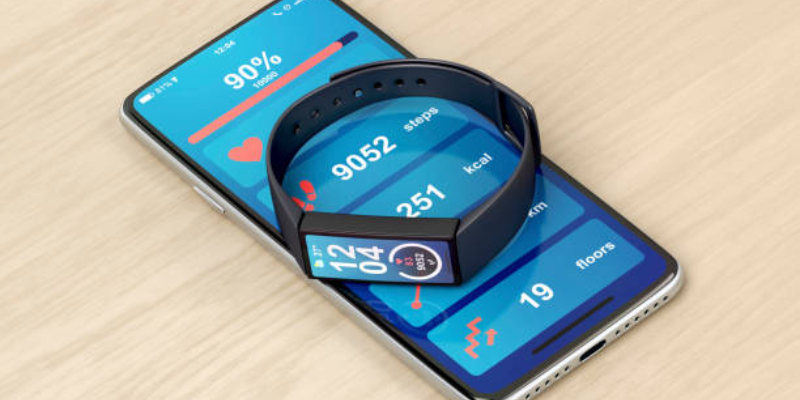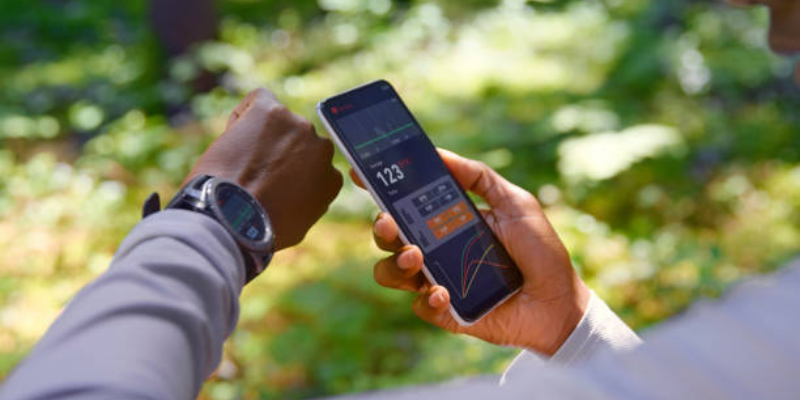Health & medical treatment
The Benefits of Fitness Trackers for Better Health Management
Fitness trackers have come a long way from the basic pedometers of old. Modern devices like the Apple Watch, Fitbit and Garmin models have advanced sensors that track everything from your heart rate and sleep patterns to calories burned during a workout.
Fitness trackers have come a long way from the basic pedometers of old. Modern devices like the Apple Watch, Fitbit and Garmin models have advanced sensors that track everything from your heart rate and sleep patterns to calories burned during a workout. In fact recent systematic reviews have shown that fitness trackers can increase your daily step count by up to 1,800 steps which is equivalent to 40 minutes of extra walking per day plus small weight loss and improved well being.
These devices work by continuously collecting data on your physical activity in real time and giving you immediate feedback to push a little harder or simply acknowledge the progress you’re making. And while some might worry that such constant monitoring could be overwhelming, many users find that seeing their numbers helps them set realistic goals and track progress over time.
You Can’t Ignore These Benefits
One of the main benefits of wearable fitness trackers is the tangible measurement of your activity. Whether it’s counting steps, monitoring heart rate or analyzing sleep quality these devices give you personalized insights to guide your daily routines. For example if you’ve ever felt unsure if your workout was “enough” your tracker can tell you every bit of movement counts and boost your confidence and consistency.

Beyond just counting steps many trackers also offer features like move reminders, stress monitoring and recovery insights. This holistic approach means the device is not just a passive recorder it’s an active coach that can help you adjust your habits in real time. Research shows that by giving you a clear picture of your physical activity these wearables contribute to improved fitness and overall health.
Another big plus is the social aspect. Many fitness trackers allow you to join communities or share your progress with friends. This element of friendly competition or mutual support can be very motivating. Imagine joining a weekly challenge with your colleagues or comparing progress with a workout buddy—the accountability and camaraderie can make exercising feel more like a team sport than a solo activity.
Top Contenders
So when it comes to choosing a fitness tracker it’s all about your personal needs and lifestyle. For example the Apple Watch Ultra 2 is a favourite among iOS users for its design and health features, the Fitbit Charge 6 and Garmin Vívoactive 5 for their battery life and variety of fitness metrics. Others swear by the Whoop 4.0 which is all about recovery and strain, giving you deep insights into how hard you’re pushing yourself and when you need to rest.
Note that some wearables focus on high-tech tracking and smart features while others focus on the basics. For example the Fitbit Versa 4 has a larger display and user friendly interface so it’s great for people who want tracking without all the bells and whistles. Compared to devices like the Coros Apex Pro 2 which are designed for people who do more varied and extreme activities like trail running or long distance cycling.
Choosing the right tracker also involves its design and comfort. Some people prefer wrist worn devices but there’s even a trend of wearing fitness trackers on the ankle for improved accuracy during certain activities—a hack that’s been praised on TikTok as “mind-blowing”. Ultimately the best device for you is the one that fits seamlessly into your daily routine and motivates you to move.
For Everyday Health
Wearable fitness trackers do more than just track your steps; they give you insights that can change your daily habits. Many users report that having a clear objective measure of their physical activity helps them overcome mental barriers. For example by seeing progress even small improvements can boost self esteem and reduce stress which is key since mental well being is connected to physical health.

Plus these devices have implications that go beyond fitness. Studies have shown that consistent use of wearables is linked to improvements in cardiovascular markers such as lower resting heart rate and better blood sugar and cholesterol levels. While the impact on these specific health markers might be small it highlights the bigger point: when you know your body’s data you are more likely to make informed decisions that contribute to long term wellness.
Another cool implication is the potential for wearables to be early warning systems. For example research is being done to see if changes in gait, heart rate variability or even sleep patterns could predict the risk of developing conditions like dementia or cardiovascular disease. So your fitness tracker might one day not only help you get fit but also alert you to potential health issues before they become serious.
Get the Most out of Your Tracker
So how do you get the most out of your wearable fitness tracker? The key is to integrate it into your life not let it become just another gadget on your wrist. Here’s a few tips:
Set Realistic Goals: Use your tracker’s data to set achievable targets. Instead of going for 10,000 steps just set small incremental changes that match your current activity level.
Review: Look at your data. Many trackers have apps that show you sleep, activity and recovery metrics. Use this to change your habits.
Social: Join groups or challenge friends. This adds fun to your workouts and a support system to keep you going.
Try Different Activities: If you’re getting bored with your usual routine, try mixing in different types of exercise. Whether it’s cycling, yoga or even a walk in a new neighborhood, variety keeps things interesting and helps you figure out what works for your body.
Listen to Your Body: Remember, your tracker is a tool—not a judge of your health. Balance data with instinct. If you’re feeling tired or sore, let yourself rest even if your numbers say you should keep moving.
Looking Ahead: The Future of Wearable Health Tech
The wearable fitness tracker landscape is changing fast. Manufacturers are adding new technologies—advanced AI algorithms that give you personalized feedback to new sensor designs that improve accuracy. Future wearables may measure health metrics even more precisely and potentially change preventive healthcare.
For example, imagine a tracker that not only tracks your activity but integrates with your doctor’s system to give you real-time insights into your heart health or metabolic markers. Already researchers are exploring how wearable data can predict health risks and pave the way for more proactive medicine. This convergence of tech and healthcare means a future where being healthy is more intuitive, accessible and tailored to you.
Ultimately, wearable fitness trackers are more than gadgets—they are a window into your body and a catalyst for change. By tracking, analyzing and reflecting on your daily activity these devices give you control over your health in ways you never thought possible.

Getting Started with Yours
Wearables are changing how we think about health. With data in your hand the benefits go way beyond counting steps—they give us awareness, healthy habits and even early health warnings. So why not give it a go? The journey to a healthier you starts with one step—and a device to track it.
How do you like this article?





 Latest Posts
Latest Posts





